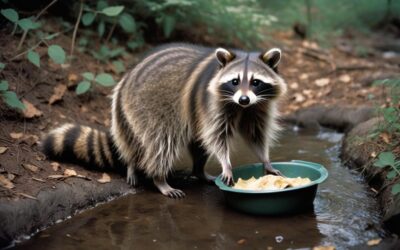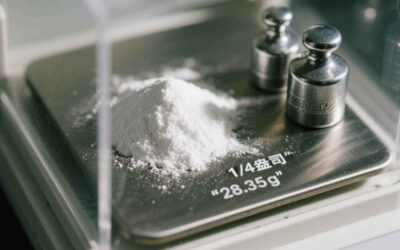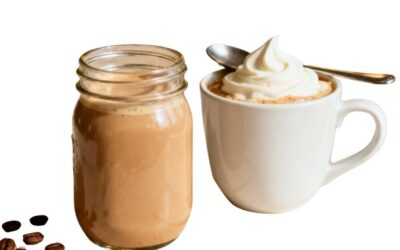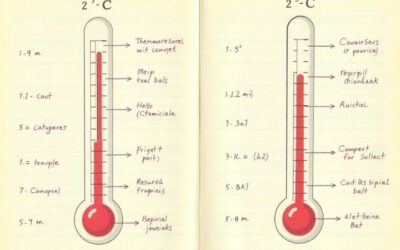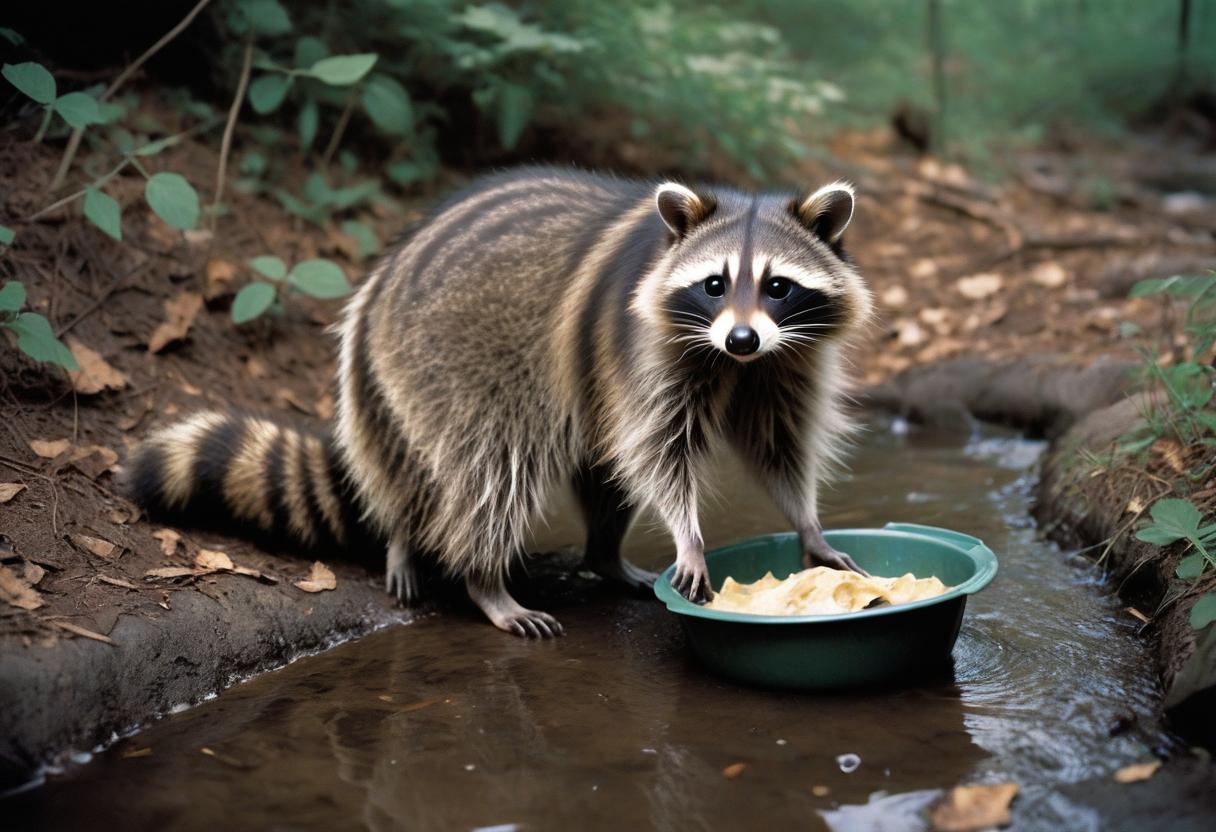Raccoons have long intrigued humans with their resourcefulness and peculiar behaviors. One of their quirks is particularly fascinating—washing their food. If you’ve observed a raccoon in the wild or at the edge of a stream, you may have noticed this behavior and wondered why it happened.
This blog aims to unravel the mystery behind raccoons washing their food. We’ll explore scientific theories, biological explanations, and cultural interpretations of this behavior. Join us as we examine these clever critters and their captivating habits closely.
Do Raccoons Really “Wash” Their Food?

At first glance, it seems obvious—raccoons appear to rinse their food in water as though following some natural sense of hygiene. But do they wash their food, or is this behavior more complex?
The keyword here is “appears.” Raccoons, scientifically called Procyon lotor, are often seen putting food into water and gently rubbing or rotating it. While this seems like washing, calling this behavior “washing” may not fully capture what’s happening. Let’s step back and examine their biology and instincts to understand it better.
Debunking the Myth of Cleanliness
Contrary to popular belief, raccoons washing their food is not about hygiene or cleanliness. Raccoons don’t display a similar level of concern for cleanliness in other areas of their lives—so if they aren’t germaphobes, what explains this behavior?
It’s essential to analyze their senses and interactions with their environment to answer that.
Why Do Raccoons Wash Their Food? Theories and Explanations
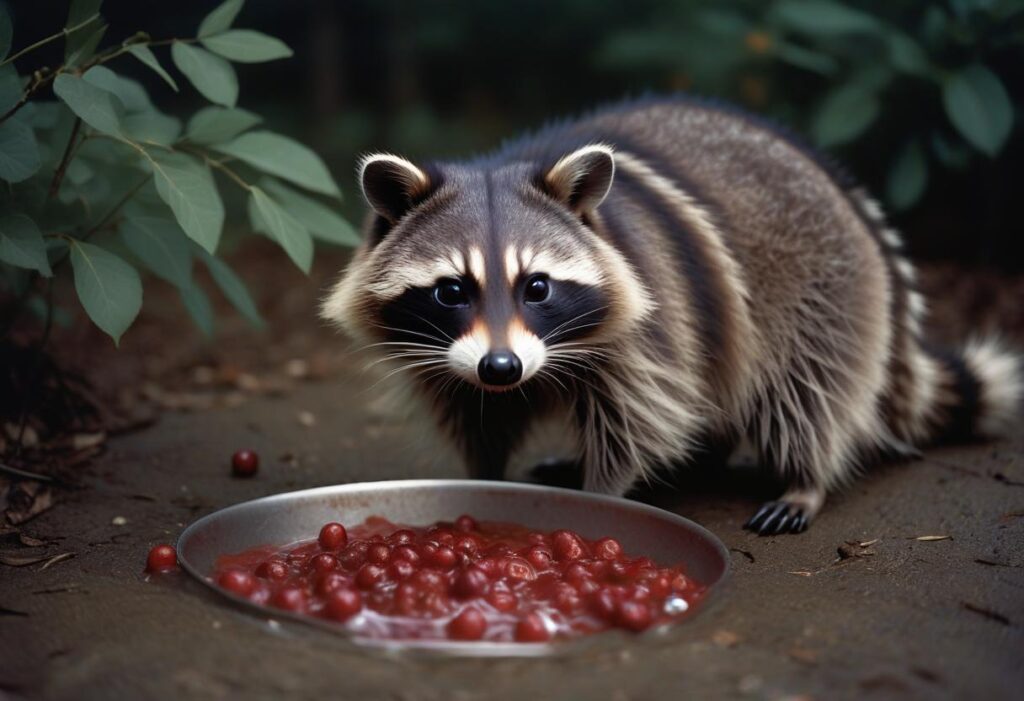
Scientists and wildlife experts have developed several theories to explain this unique behavior. While none are definitive, they provide fascinating insights into raccoon instincts and adaptations.
Enhancing Tactile Sensation
Raccoons have incredibly sensitive and dexterous front paws, essential for locating and processing food. One popular hypothesis suggests that dipping their food in water enhances their tactile sensations.
This idea is supported by the structure of a raccoon’s brain. Much of their brain is dedicated to processing sensory input from their paws, akin to how humans rely heavily on vision. When food is wet, the additional moisture may heighten the nerve endings on their paws, allowing them to better “feel” the food and identify what they are handling—even distinguishing between edible items and debris.
Evolution and Feeding Habits
Not all raccoons wash their food. This behavior is more commonly observed among raccoons living near water sources. It’s worth noting that raccoons are opportunistic eaters and have a highly varied diet that includes fruits, nuts, fish, amphibians, and even garbage.
Raccoons in aquatic environments are adept at foraging in streams or ponds. Food washing could be an evolutionary holdover, adapted for finding aquatic prey like crawfish and amphibians. Over time, this motion may have generalized to all food items.
Removing Unwanted Substances
Another theory posits that raccoons may soak food to remove dirt or foreign substances. For instance, if the food item has sand, mud, or chemicals, soaking could make it more palatable. However, this explanation falls short of explaining why raccoons have been observed “washing” foods like marshmallows, which are inherently clean.
Instinctual Behavior
Even when water isn’t available, some raccoons have been observed mimicking the washing motion on dry surfaces! This suggests the behavior may be instinctual rather than purely functional. These motions might stem from deeply ingrained behaviors tied to their evolutionary history.
Conditioning and Environment
A less scientific but intriguing explanation relates to conditioning. Raccoons are brilliant animals capable of learning and adapting. If a raccoon discovers that washing food produces a better texture or flavor, it may repeat the behavior out of preference. Over time, this could become habitual.
Cultural Interpretations and Symbolism of Raccoons
Beyond biology, raccoon behavior occupies an interesting place in human culture. Their dexterous movements and unique traits have made them the subject of folklore in various cultures.
For example:
Native American Legends often depict raccoons as cunning and clever, though their “washing” behavior isn’t a significant focus.
Modern Popularity has elevated raccoons as symbols of adaptation and perseverance—traits they demonstrate through behaviors like food washing.
While these cultural interpretations aren’t scientific, they underscore our fascination with these animals and their intriguing habits.
Can Raccoons Be Trained to Stop Washing Food?
Food washing can seem quirky at first but eventually puzzling or frustrating for those who keep raccoons as pets (though this is discouraged in many jurisdictions). Can this behavior be stopped?
Because the action appears instinctual or deeply ingrained, it may be challenging to completely stop a raccoon from washing its food. Some pet owners claim that offering dry items or feeding in areas without water might reduce the behavior, but there are no guarantees.
Additionally, raccoons are wild animals at heart, and their instincts—including behaviors like food washing—make them who they are.
How Raccoons Help Us Understand Animal Behavior
Whether or not raccoons “wash” their food, their actions represent remarkable adaptive behavior that demonstrates their problem-solving capabilities. Biologists and animal behaviorists continue to study raccoons as a model for understanding intelligence, evolution, and instincts in wild animals.
For anyone curious about the natural world, raccoon behaviors highlight how much we still have to learn. Studying their habits offers a window into the interplay between biology and the environment.
Final Thoughts: Understanding, Not Judging
Raccoons washing their food may remain a mystery, but observing this behavior reveals a glimpse into their complex, adaptive nature. Whether they’re amplifying tactile feedback, engaging in instinctual practices, or simply entertaining themselves, these creatures remind us of the fascinating intricacies of the animal kingdom.
For wildlife enthusiasts and researchers alike, the next time you see a raccoon “washing” its food, consider it an invitation to understand, appreciate, and learn more.
Want to Learn More About Animal Behaviors?
Dive into more fascinating wildlife stories and behaviors on our blog. If you’re researching raccoon behavior or enjoy an up-close look at nature’s quirks, follow us for expert insights!










